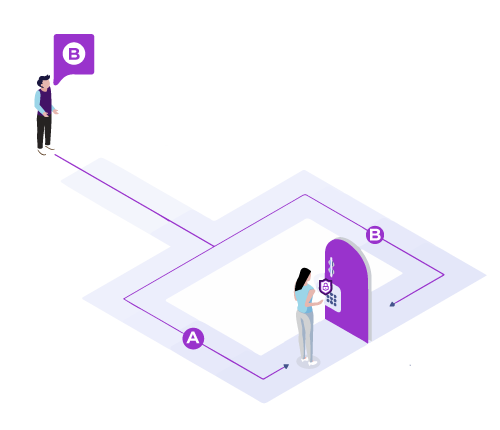Unlocking the power of privacy:
Zero-Knowledge Proof for secure and seamless Identity Verification
In today’s digital age, Identity Verification has become an essential aspect of online security. With the rise of cybercrime, it is essential to have robust methods to ensure that only authorized individuals have access to sensitive information. Zero Knowledge Proofs are one such method that has gained popularity in recent times. In this blog post, we will explore how ZKP can be used for Identity Verification.

Zero Knowledge Proofs are a cryptographic technique that allows one party (the prover) to prove to another party (the verifier) that they know a specific piece of information, without revealing any other details about that information.
The concept was first proposed in the 1980s by Shafi Goldwasser, Silvio Micali, and Charles Rackoff. Since then, it has been used in various fields, including Computer Science, Cryptography, and Blockchain technology.
In traditional Identity Verification processes, individuals typically need to provide personal information such as their name, address, and date of birth, as well as some form of identification such as a driver’s license or passport. While this information is necessary for many transactions, it can also be a target for identity theft or fraud. Additionally, individuals may be uncomfortable sharing personal information with third parties, even if those parties are trustworthy.
ZKP offers a solution to this problem by allowing individuals to prove their identity without revealing any sensitive information. The basic idea behind ZKP is that an individual can provide proof of knowledge of a specific piece of information, such as a password or a private key, without actually revealing that information to the verifying party. This is accomplished through complex mathematical algorithms that generate a proof of knowledge that can be verified by the verifying party.
For example, suppose an individual wants to prove that they are over the age of 18 without revealing their date of birth. They could use a ZKP protocol to demonstrate knowledge of a private key that is associated with a public key that has been previously verified to correspond to an identity that is over the age of 18. The verifying party can then verify that the proof is valid without actually learning the individual’s date of birth.
ZKP can also be used for more complex Identity Verification scenarios, such as verifying an individual’s citizenship or residency status.
In these cases, the individual would provide a proof of knowledge that is based on a combination of publicly available information, such as a national identification number or a tax ID, as well as some private information, such as a password or a private key. The verifying party can then use this proof to verify the individual’s identity without actually accessing any of their personal information.
There are several advantages to using ZKP for Identity Verification. First, it allows individuals to maintain control over their personal information and only reveal what is necessary for a specific transaction. This can help reduce the risk of identity theft or fraud. Second, ZKP can be used to verify identities across multiple parties, such as banks, government agencies, and healthcare providers. This can help streamline the identity verification process and reduce the burden on individuals.

